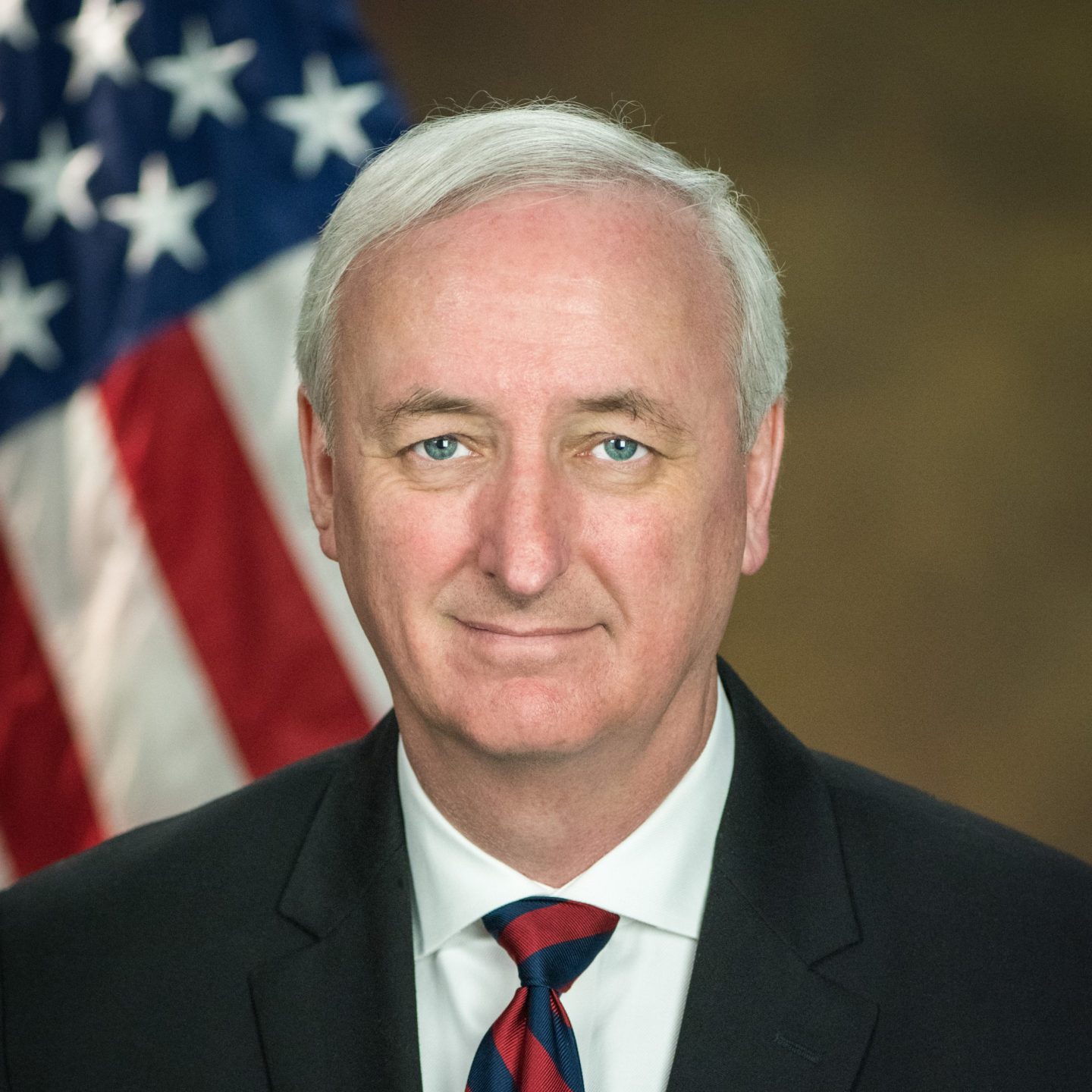Those efforts failed due to pushback from his own appointees in the Justice Department, who refused to file what they viewed as a legally baseless lawsuit in the Supreme Court. Later, other senior department officials threatened to resign en masse should Mr. Trump fire then-acting Attorney General Jeffrey Rosen, according to several people familiar with the discussions.
Senior department officials, including Mr. Rosen, former Attorney General William Barr and former acting Solicitor General Jeffrey Wall refused to file the Supreme Court case, concluding that there was no basis to challenge the election outcome and that the federal government had no legal interest in whether Mr. Trump or Mr. Biden won the presidency, some of these people said. White House counsel Pat Cipollone and his deputy, Patrick Philbin, also opposed Mr. Trump’s idea, which was promoted by his outside attorneys, these people said.
“He wanted us, the United States, to sue one or more of the states directly in the Supreme Court,” a former administration official said. “The pressure got really intense” after a lawsuit Texas filed in the Supreme Court against four states Mr. Biden won was dismissed on Dec. 11, the official said. An outside lawyer working for Mr. Trump drafted a brief the then-president wanted the Justice Department to file, people familiar with the matter said, but officials refused.
After his Supreme Court plan got nowhere, Mr. Trump explored another plan—replacing Mr. Rosen as acting attorney general with Jeffrey Clark, a Trump ally in the department who had expressed a willingness to use the department’s power to help the former president continue his unsuccessful legal battles contesting the election results, these people said.
Mr. Trump backed off that plan after senior Justice Department leadership threatened to resign en masse if the president removed Mr. Rosen, people familiar with the discussions said.
Weeks before the Nov. 3 presidential election, Mr. Trump had predicted the outcome could be determined by the Supreme Court; that possibility was a reason he gave for rapid confirmation of his third appointee to the court, Justice Amy Coney Barrett, following Justice Ruth Bader Ginsburg’s death in September.
“I think this [election] will end up in the Supreme Court. And I think it’s very important that we have nine justices,” Mr. Trump told reporters on Sept. 23. “Having a 4-4 situation is not a good situation.”
As challenges to the election results went nowhere in multiple state and federal courts, Mr. Trump and his allies placed their hopes in a lawsuit that Republican Texas Attorney General Ken Paxton planned to file directly in the Supreme Court against four states that voted for Mr. Biden. The suit alleged that Texans’ rights were violated because Georgia, Michigan, Pennsylvania and Wisconsin failed to follow their own election laws in the November vote.
Before the Texas suit was filed, a group of Republican state attorneys general spoke with Mr. Barr about getting the Justice Department to back the claim, particularly if the Supreme Court asked for the department’s views on the case, people familiar with the discussions said.
Mr. Barr consulted with Mr. Wall, who is the government’s advocate before the Supreme Court. Mr. Wall told Mr. Barr that Texas’s lawsuit was likely to fail because the state lacked legal standing to challenge other states’ administration of their own laws, the people said, accurately anticipating the grounds the Supreme Court ultimately cited in dismissing the case.
Mr. Barr told the Republican officials that the department couldn’t be counted on to support their legal claim if the Supreme Court sought its opinion, these people said.
Representatives of Mr. Paxton and the Republican Attorneys General Association couldn’t immediately be reached.
After the Texas case was dismissed on Dec. 11, Mr. Trump began pushing for the Justice Department to file its own lawsuit against the states directly in the Supreme Court, the people said. Frustrated that his wishes weren’t being implemented, Mr. Trump at one point planned to bypass the attorney general and telephone Mr. Wall directly, these people said.
Mr. Trump didn’t follow through with a phone call, but one of his outside lawyers sent over a draft legal brief he wished the department to file with the Supreme Court, these officials said.
After Mr. Barr resigned shortly before Christmas, Mr. Trump pushed Mr. Rosen to authorize the lawsuit. At Mr. Rosen’s request, the solicitor general’s office prepared a brief memo with talking points he could use in an effort to explain to Mr. Trump why the lawsuit wasn’t legally viable, the people said.
Mr. Clark denied involvement in a plan to oust Mr. Rosen, which was earlier reported by the New York Times. Mr. Rosen couldn’t immediately be reached for comment.
“My practice is to rely on sworn testimony to assess disputed factual claims,” Mr. Clark said in a statement sent to The Wall Street Journal after the publication of the story in the Times. “There were no ‘maneuver[s].’ There was a candid discussion of options and pros and cons with the president. It is unfortunate that those who were part of a privileged legal conversation would comment in public about such internal deliberations, while also distorting any discussions.…Observing legal privileges, which I will adhere to even if others will not, prevents me from divulging specifics regarding the conversation.”
Mr. Trump has defended his efforts to change the election results by alleging, without evidence, that there was widespread fraud as an attempt to “honor” the votes of those who supported him and ensure Americans “can have faith” in the electoral process.
Mr. Trump’s push to employ the Justice Department in that effort drew sharp criticism from Democratic lawmakers.
“This powerful report shows how Trump came within a hair’s width of taking down our democracy,” Sen. Richard Blumenthal (D., Conn.) said Saturday. “Now my Senate colleagues must show spine and break silent complicity—and vote to convict,” he said.
Mr. Trump’s plan to orchestrate a last-minute change in the department was part of the broader effort by the former president and his allies to involve the Justice Department in their attempts to cast doubt on Mr. Biden’s November victory.
White House officials had pressured Atlanta’s top federal prosecutor to resign before Georgia’s Jan. 5 Senate runoff elections because Mr. Trump claimed he wasn’t doing enough to investigate unproven claims of election fraud there, the Journal previously reported, a matter now under investigation by the department’s inspector general, a person with knowledge of the probe said.
Atlanta U.S. Attorney Byung J. Pak stepped down Jan. 4, the day after news organizations published a recording of a call between Mr. Trump and Georgia’s Secretary of State Brad Raffensperger, a fellow Republican, in which Mr. Trump pushed the state officials to “find” enough votes to overturn the November presidential election results.
Mr. Trump acknowledged the call with Mr. Raffensperger, tweeting: “He was unwilling, or unable, to answer questions such as the ‘ballots under table’ scam, ballot destruction, out of state ‘voters’, dead voters, and more. He has no clue!” Mr. Raffensperger tweeted back: “Respectfully, President Trump: What you’re saying is not true. The truth will come out.”
After two recounts and one audit of ballot signatures, Mr. Raffensperger had concluded there was no evidence of widespread fraud that could change the results and Georgia Gov. Brian Kemp, also a Republican, certified Mr. Biden’s narrow win in the state on Nov. 20.
Even before Mr. Barr’s departure, Mr. Trump had called Mr. Rosen to the White House to pressure him to appoint a special counsel to investigate unfounded claims of widespread voter fraud and voting-machine manufacturer Dominion, the people said, a move Mr. Barr had concluded was unnecessary.
Mr. Trump and his attorneys had lost dozens of cases in courts at all levels, including the U.S. Supreme Court. In the five weeks after Election Day, the Trump campaign and other Republicans lost at least 40 times in six pivotal states: Arizona, Georgia, Michigan, Nevada, Pennsylvania and Wisconsin. In several other cases, the campaign or allies withdrew claims after filing them.
Mr. Rosen refused, reiterating Mr. Barr’s conclusion that there was no widespread fraud.
Corrections & Amplifications
Former President Trump exchanged tweets with Georgia Secretary of State Brad Raffensperger the same day a recording of their conversation was leaked to the news media. An earlier version of this article incorrectly said the tweets were issued the next day. (Corrected on Jan. 25, 2021)




